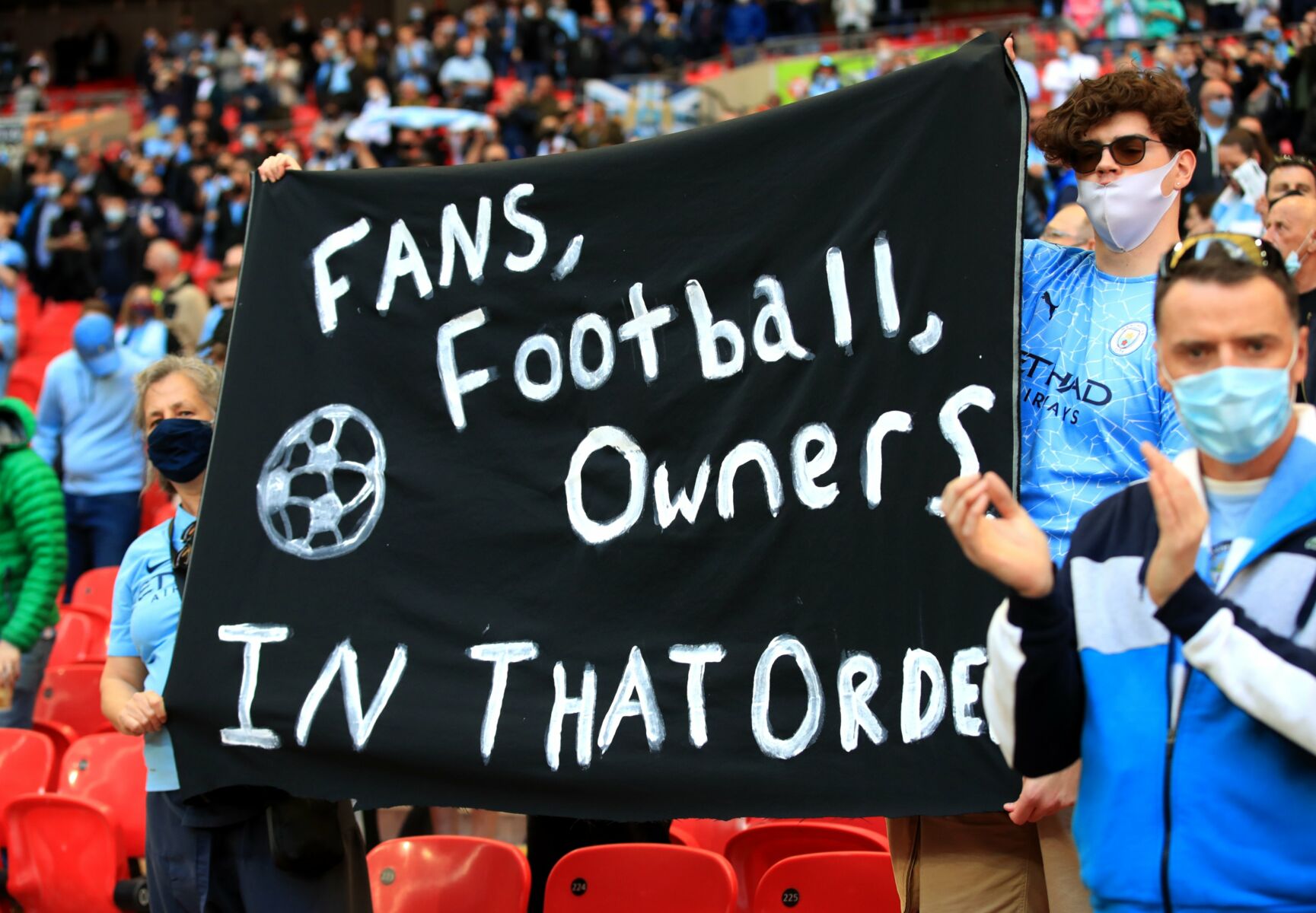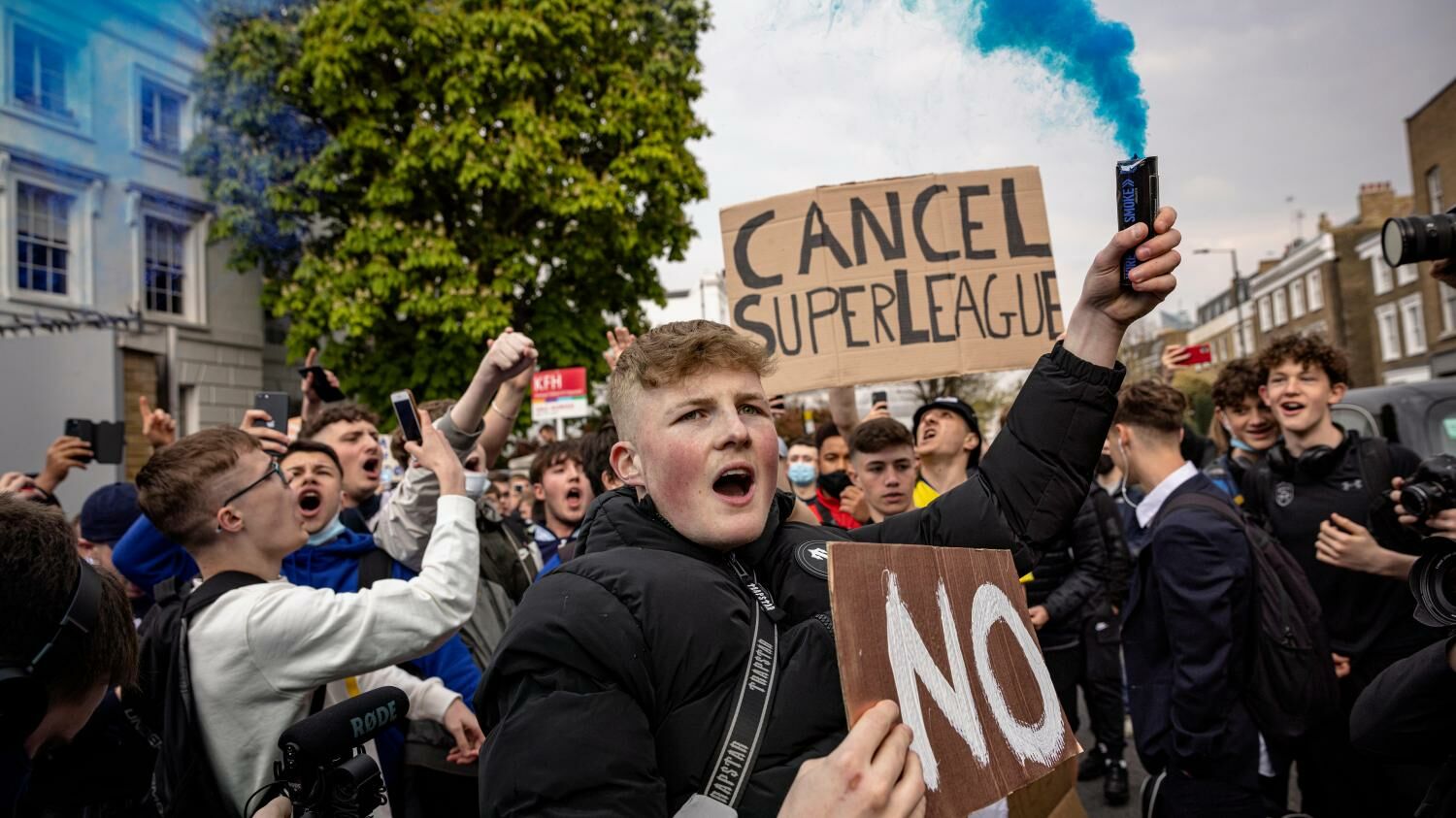Premier League clubs blocked from joining European Super League

The UK government has created an independent regulatory body to prevent Premier League clubs from joining any future European Super League (ESL). The regulator also promises to preserve English football’s cultural heritage and protect vulnerable clubs from going out of business in the future and give supporters a greater say in how their clubs are run.
The primary purpose of the proposed new regulator will be to stop English clubs from joining closed-shop competitions, which are judged to harm the domestic game while preventing a repeat of financial failings seen at numerous clubs, notably the collapses of Bury and Macclesfield, reported the BBC.
The body plans to introduce a more stringent owners’ and directors’ test to protect clubs and fans, give fans the power to stop owners from changing a club’s name, badge and traditional kit colours, and ensure a fair distribution of money filters down the English football pyramid from the Premier League.
The government said…
“The English game remains one of the UK’s greatest cultural exports, with clubs and leagues around the world modelling themselves on its success. That is why today’s government is taking the necessary and targeted steps to ensure that continues for generations.”
The English Premier League (EPL) was understood to be wary of a regulatory body when the proposals were announced in April last year. The EPL said it is “vital” a regulator does not lead to any “unintended consequences” that could affect its global appeal and success.
Despite EPL reservations, the government is determined to push through reform to stop any breakaway teams joining an ESL.
It said…
“The regulator will have the power to prevent English clubs from joining new competitions that do not meet predetermined criteria, in consultation with the FA and fans.
“That criteria could include measures to stop clubs participating in closed-shop breakaway competitions which harm the domestic game, such as the European Super League.”

In April 2021, Manchester United, Liverpool, Arsenal, Tottenham Hotspur, Chelsea, and Manchester City, withdrew from a proposed ESL following widespread backlash and fan protests.
A fan-centric inquiry, spearheaded by Conservative MP Tracey Crouch, produced its comprehensive findings, which will be released today in a government white paper.
The inquiry was launched in the aftermath of the bankruptcies of historical clubs Bury and Macclesfield Town, resulting from mismanagement.
The review identified that since the establishment of the Premier League in 1992, 64 clubs have entered administration, and it highlights the “serious financial risk” that persists across the leagues.
After the 2020/21 season, the combined net debt of clubs in the Premier League and Championship was calculated to be £5.9 billion.
Prime Minister Rishi Sunak welcomed the review. He said…
“Since its inception over 165 years ago, English football has been bringing people together, providing a source of pride for communities and inspiration to millions of fans across the country.
“Yet despite the sport’s success at home and abroad, we know that there are real challenges which threaten the stability of clubs both big and small.
“These bold new plans will put fans back at the heart of football, protect the rich heritage and traditions of our much-loved clubs and safeguard the beautiful game for future generations.”
Kevin Miles, the chief executive of the Football Supporters Association, said the group “warmly welcomed” the introduction of a regulator.
“The football governance white paper clearly addresses our key concerns around ownership, rogue competitions and sustainability.
“We support any proposals that offer fans a greater voice in the running of their clubs.”
The English Football League (EFL) also expressed its support.
“The EFL has been clear that the English game needs a fundamental financial reset in order make the game sustainable,” a statement read.
“The white paper represents a once-in-a-generation opportunity that must be seized to address the systemic issues that football has been unable to sort itself over the last 30 years.”

Latest Thailand News
Follow The Thaiger on Google News:


























